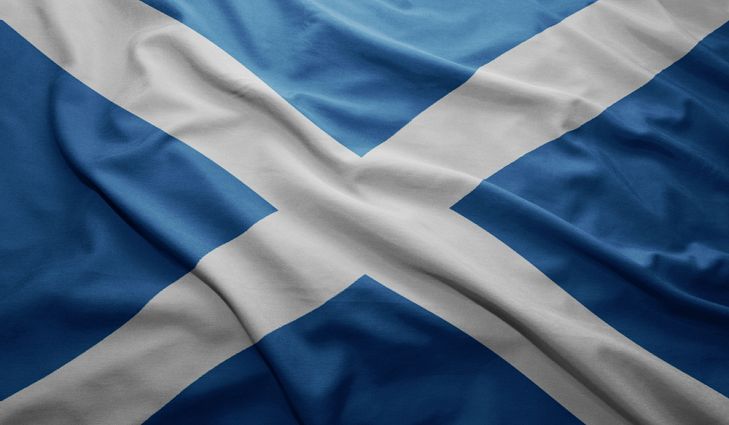The answer to the question is more complicated than you would think.

Is Scotland a country?
The question of whether Scotland is a country or not may raise some level of confusion because it can fall on either side of the argument. Scotland has its own flag, its own national identity and The Scottish Parliament has the power to make its own laws.
However, it can only make laws on certain areas. These areas are specified in the Scotland Act and are called ‘devolved issues’.
There are eight accepted criteria that form the basis of whether a region is an independent nation or not. A country needs to fulfill all of the criteria to be recognized as an independent State. Scotland meets some of them, but not all of the criterias.

The 8 Criteria
To be an independent country you need to have these 8 criteria accepted!
1: The Territory Must Have Boundaries Recognized Internationally
Scotland has!
Scotland’s territorial extent is based on the Treaty of York of 1237 agreed between the Kingdom of England and Scotland and the subsequent Treaty of Perth of 1266 between Scotland and Norway. However, over time portions of Scotland’s territory were lost. The Isle of Man acquired by the UK and Shetland and Orkney lost to Norway. Scotland’s area is 30,414 square miles.
2: Population
Check too!
In 2017 there’s reported a population of 5,425,400, a rise from the 5,062,011 in 2001.
About 62% of the residents identified as being “Scottish only,” while 18% said they were Scottish and British. 8% of the population identified as “British only” while 4% identified as being of another identity only. Glasgow, with more than 1,2 million inhabitants living in the Greater Glasgow conurbation, ranks as Scotland’s largest city, eventhough Edinburgh is the capital of the nation.
3: An Organized Economy and Economic Activity
Hmmmmmm! This is a tough one!
A country needs to regulate both domestic and foreign trade and disburse the money.
In 2015, Scotland’s economy registered approximately 145 billion British Pounds in GDP. The per capita GDP of Scotland was among the highest in the EU same year. Scotland has an open mixed economy similar to what’s used in western countries, including the UK.
Scotland, however, does not regulate its domestic or foreign trade as the Scottish Parliament is not empowered to do so. Although the Bank of Scotland has the mandate to print money, it only prints the British Pound and does so on behalf of the Central Government.
4: The Power of Social Engineering
Yes! Or?
The Scottish Parliament retains the power to control education as well as social work and training. However, this power does not extend to social security. Scotland’s education system thus differs from that implemented in the rest of the UK.
5: Transportation System
It’s a UK thing!
Although Scotland possesses a transportation system, it is partially controlled by the UK. While Scotland manages rail strategy and funding, the UK, under the Network Rail Infrastructure Limited, operates Scotland’s rail network. Scotland manages ports and harbors and the road network while the UK oversees transport regulation and safety.
6: A Government That Offers Public Services in Addition to Police Power
Yep.. They control home affairs and law in Scotland! But..
The UK Parliament retains the mandate to oversee national security and defense in all parts of the UK. Scotland, through its parliament, has the mandate to control home affairs and law including the courts and the prosecution system.
7: Sovereignty
Nope!
Scotland lacks sovereignty as it is not an independent nation. According to the criteria of sovereignty, no other country should have authority over the particular nation’s territory. The United Kingdom maintains authority over the territory of Scotland
8: International Recognition
This criterion requires that other countries should recognize the sovereignty of the country in question. Scotland does not operate embassies in other nations, and it lacks external recognition.

My thoughts – Is Scotland A Country?
Scotland is NOT a member of the United Nations.
But if I had been to every UN country in the World and not Scotland, it would just feel wrong..
If you you ask any British person, they would say, “yes, Scotland is a country”, much as Wales, England and Northern Ireland are. Scotland has an independent parliament, and have their own laws, and you’ll also see them represented by their own sports teams, though they share a military and an economy.
However, they’re also part of a union: the United Kingdom, which only have 1 seat in the UN, all ostensibly ruled by Her Majesty, Queen Elizabeth. It’s been like that since 1706, with the Act of Union, which brought two countries together – two kingdoms of England and Scotland into the United Kingdom of Great Britain.
Scotland have considered breaking the union on several occasions and becoming a fully-independent nation once more (particularly in the wake of the Brexit), but they elected to remain part of the union, and the alliance between the nations remains pretty strong as it has been for centuries.

Scotland is surely a country within a country.
– Gustav
gus1thego.com
